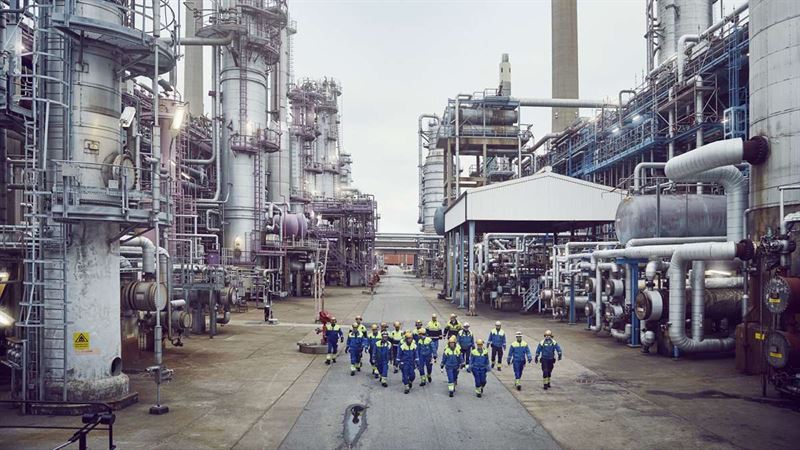Aker Solutions Wins CCUS Work for Preem in Sweden

Aker Solutions has been selected by Preem, Sweden’s largest fuel company, to perform tests and studies of its carbon capture technology at Scandinavia’s biggest oil refinery in Lysekil on the Swedish west coast.
Aker Solutions will conduct a feasibility study of the technological and economic impact of implementing carbon capture of major emission source at Preemraff Lysekil. The refinery is Scandinavia’s largest, with an annual capacity to process 11.4 million cubic meters of crude oil.
The scope also includes pilot testing of carbon capture from the oil refinery flue gas in industrial conditions.
Preem’s refineries account for 80 percent of the Swedish refinery capacity, and are among Europe’s most modern and most environmentally efficient. Now the company is exploring its next steps in the transition to a sustainable society.
“Norway is at the forefront of technology development for storage of carbon dioxide (CO2) , and in Sweden there are many industries with great interest in capturing greenhouse gases to reduce their emissions. Through this international co-operation, the best possible conditions are given for large-scale CCS to become a reality,” said Petter Holland, CEO of Preem.
“We are pleased to be a partner in this pioneering project,” said Oscar Graff, VP and head of Carbon Capture, Utilization and Storage (CCUS) at Aker Solutions. “The refinery in Lysekil is one of the largest emitters of CO2 in Sweden and a potential candidate for carbon capture and permanent storage of CO2.”
Aker Solutions’ activities are part of a broader Preem R&D project, which has been granted funding from public energy funding vehicles; Gassnova in Norway and Energimyndigheten in Sweden.
Mobile Test Unit
Aker Solutions’ mobile test unit (MTU), a complete, small-scale carbon capture plant, will be engaged in a nine-month test campaign at the refinery. The purpose of the test is to learn more about the carbon capture process performance on the refinery gas. Parameters such as solvent degradation rate, energy efficiency and percentage of CO2 captured, will provide important information for possible later design and implementation of a large-scale capture plant.
The feasibility study will include design of a full-scale carbon capture plant for the Hydrogen Production Unit (HPU) at the refinery.
“The test results will form a realistic basis for this study and will help to reduce the overall project risk of a possible large-scale development,” said Graff. “The contract with Preem will allow us to demonstrate our carbon capture process on a flue gas that is different from what we experience in other industries, such as cement, waste-to-energy and fossil power plants. The results will provide valuable information to Preem and support Aker Solutions’ position for future deliveries of carbon capture plants at oil refineries.”


